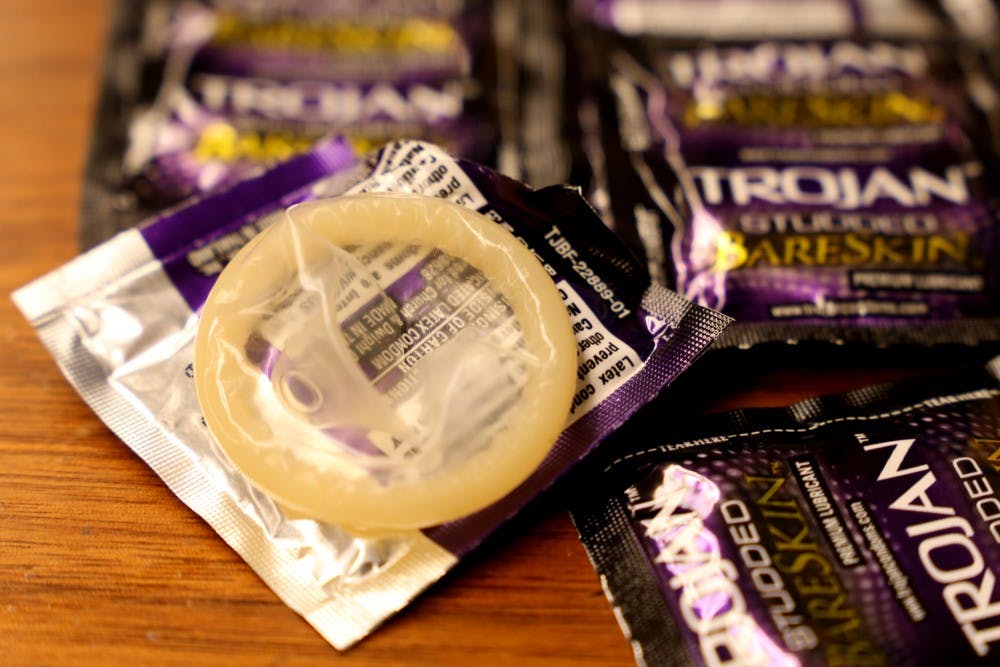ASU’s Undergraduate Student Government cancelled a masturbation seminar called “Go Love Yourself,” which was initially titled “Go F<3CK Yourself,” due to public backlash. Shortly after, they also cancelled the Project Condom fashion show fearing the same reaction.
Although these events were not well-received by conservative media, it is still important to hold sex-positive events on campus in order to promote healthy sexuality and sex education.
Shawn Hrncir, a senior lecturer for ASU’s School of Nutrition and Health Promotion and professor of human sexuality for health education, said the initial name of the masturbation seminar might have struck a nerve with some groups.
“I thought the title was pretty clever and that it would draw a certain audience, but, unfortunately, it sounded like it alienated another group,” Hrncir said regarding conservative groups. “That’s what we have to pay attention to with health education and health promotion. We want to create messaging that supports and invites everyone so that we can teach and provide knowledge that will protect our public.”
Even after the event was renamed to Go Love Yourself to be more welcoming, the event was still axed. Regardless of the name, these events did not alienate anyone, but rather provided a useful resource for people to learn.
Calling into question the use of public funds for sexual health education assumes that educating the public about how to prevent unplanned pregnancy and also the spread of sexually transmitted infections is less important than other forms of health education.
However, it is crucial to provide easy access to education about healthy sexuality because in situations like these, personal choices affect the health and well-being of others. This is especially important on college campuses, as many young adults first become sexually active.
According to the Centers for Disease Control and Prevention, over half the individuals diagnosed with a sexually transmitted infection each year are in the age group of 15 to 24, even though this age group only comprises one-fourth of the sexually active population.
“Some students will sign up for classes, but these types of public health events reach a number of our public, and this particular audience is critical to reach,” Hrncir said. “The more informed people are about sexuality, the more they’re likely to make choices that protect their health as well as other people’s health. I think it’s critical that comprehensive sexual health promotion and education is available to the public.”
Historically, sexual education has not been comprehensive. In many parts of Arizona as well, abstinence-only education is stressed highly over safe-sex education. This is detrimental to students who enter college not knowing the basics of healthy sexuality, and they could end up either contracting a disease or transmitting one.
“Health education is not a moral issue. It’s a science,” Hrncir said. “It’s education that protects and helps the public to make informed health decision. I think planning another event that promotes healthy sexuality and making choices based on lessons learned from this experience is important moving forward.”
As young people begin to get more in touch with their sexualities, it is absolutely crucial that enough comprehensive, sex-positive education is available to them in order to help them make healthy decisions and lower these rates of STI transmissions.
“Choosing to be sexually active is a personal choice,” Hrncir said. “That is not up to anybody else to decide. People are entitled to their opinions and their own moral beliefs as it relates to sexual activity, but they’re not entitled to impose those beliefs on other people. That’s why we have separation of church and state.”
Reach the columnist at kalbal@asu.edu or follow @KarishmaAlbal on Twitter.
Editor’s note: The opinions presented in this column are the author’s and do not imply any endorsement from The State Press or its editors.
Want to join the conversation? Send an email to opiniondesk.statepress@gmail.com. Keep letters under 500 words and be sure to include your university affiliation. Anonymity will not be granted.
Like The State Press on Facebook and follow @statepress on Twitter.




